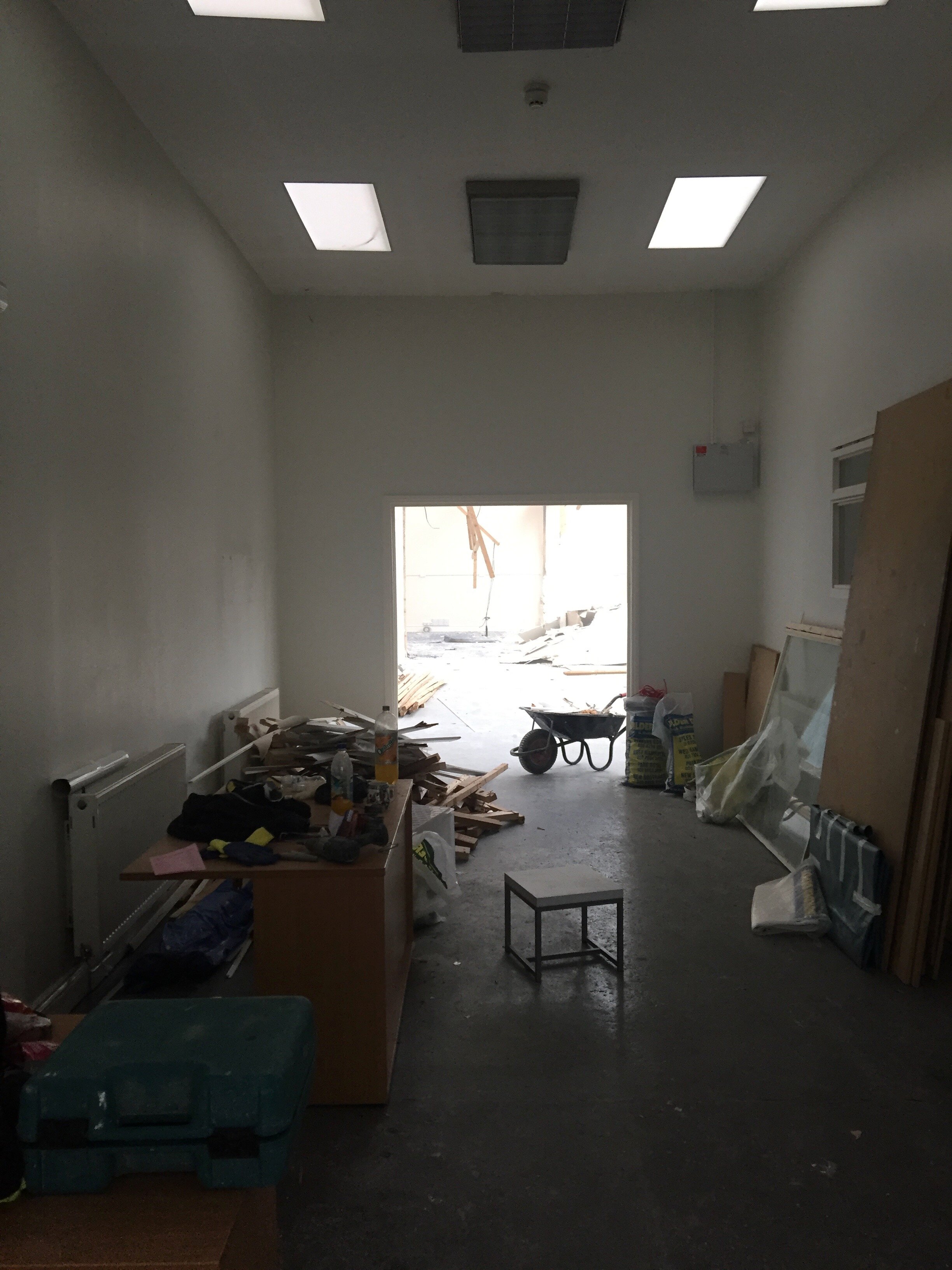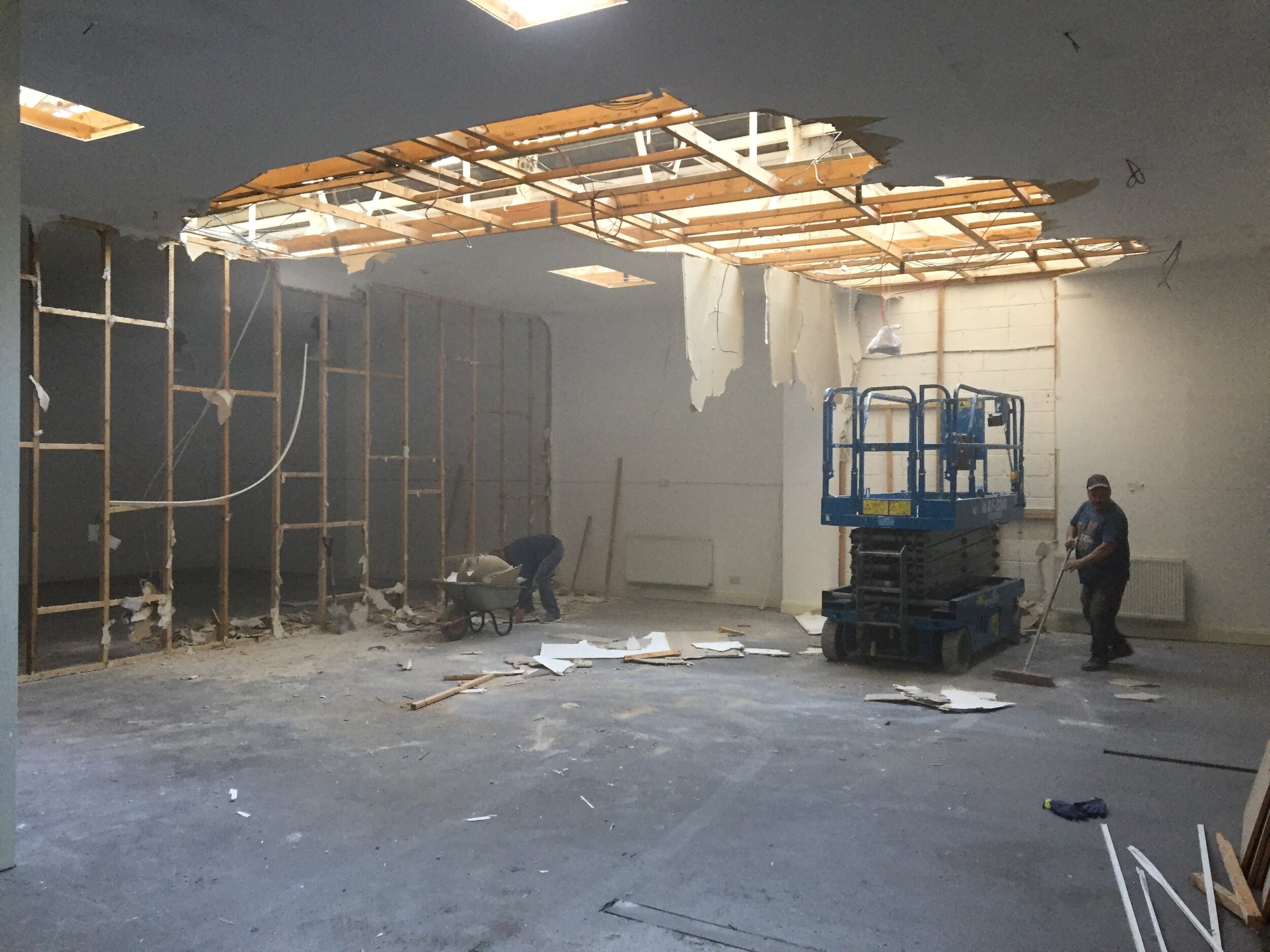Unlocking Advanced Unity: What Could Unit 58 Offer?
In the dynamic world of game development and interactive experiences, mastering a powerful engine like Unity is a continuous journey. From understanding the basics of a Unity ID to navigating complex physics interactions and robust unit testing, developers are constantly seeking to deepen their knowledge. But what if there was an advanced learning module, perhaps a conceptual "Unit 58," designed to push the boundaries of your Unity expertise? This article delves into the potential scope and critical importance of such an advanced unit, exploring how it could address the real-world challenges and advanced topics frequently discussed within the Unity community.
The Unity ecosystem is vast, offering tools and services that range from asset creation to deployment across multiple platforms. As developers progress, they encounter increasingly intricate problems that demand a sophisticated understanding of the engine's inner workings. While foundational tutorials like "Unit 6 to Unit 9" provide essential building blocks, the community often grapples with more nuanced issues, such as the specifics of physics calculations or the intricacies of unit testing for complex systems. A hypothetical "Unit 58" would serve as a beacon for those ready to transcend intermediate challenges, offering deep dives into areas crucial for professional-grade development.
Table of Contents
- The Quest for Deeper Knowledge: Beyond Basic Unity Tutorials
- Understanding "Units" in the Unity Ecosystem
- The Critical Role of Unit Testing in Unity Development
- Navigating Physics and Measurement Units in Unity
- Community Insights: The Pulse of Unity Development
- Building Robust Applications: What an Advanced Unit 58 Might Cover
- Preparing for Unit 58: Essential Prerequisites
- The Future of Learning: Evolving with Unity
The Quest for Deeper Knowledge: Beyond Basic Unity Tutorials
Every Unity developer starts with the basics: understanding the interface, creating game objects, and writing simple scripts. The Unity Learn section and its extensive documentation are invaluable resources for this foundational knowledge. However, as projects grow in complexity, so do the challenges. Developers often find themselves wrestling with performance optimization, advanced rendering techniques, complex AI behaviors, or intricate networking solutions. These are the areas where standard tutorials might fall short, leaving a gap that an advanced learning module like "Unit 58" could perfectly fill. It represents the next frontier for those who have mastered the fundamentals and are ready to tackle the truly demanding aspects of game development.
Understanding "Units" in the Unity Ecosystem
The term "unit" in the context of Unity can refer to several distinct concepts. Firstly, it often denotes a specific module or section within a learning pathway, such as the mentioned "unit 6 to unit 9 tutorials." These units are structured to progressively build knowledge, covering various aspects of the engine. Secondly, "unit" can refer to a standard of measurement, particularly in physics simulations, where understanding SI units (International System of Units) is crucial for accurate behavior. Finally, and perhaps most critically for robust software, "unit" refers to a "unit test" – a small, isolated piece of code designed to verify the correct behavior of a specific component of your application. An advanced "Unit 58" would likely integrate all these meanings, pushing developers to think holistically about their projects.
From Unit 6 to Unit 9: The Learning Progression
The question raised by a community member, "Why are there no unit 6 to unit 9 tutorials on learn.unity website," highlights the importance of structured learning paths. These foundational units typically cover core concepts, gradually introducing developers to scripting, game mechanics, and asset integration. While these are essential, they often serve as prerequisites for more advanced topics. A hypothetical "Unit 58" would naturally build upon this foundation, assuming a solid grasp of these earlier concepts and venturing into areas that require a deeper, more nuanced understanding of Unity's architecture and best practices. It would move beyond "how to" and into "why" and "how to optimize."
The Critical Role of Unit Testing in Unity Development
For professional developers, especially those working on large-scale or long-term projects, unit testing is not just a good practice—it's a necessity. The provided community discussions frequently touch upon the challenges of unit testing within Unity. Queries like "Is there any way to run nunit unit test when compiling on editor mode" or "Localization table not loading during unit testing" underscore the real-world complexities developers face. "Trouble unit testing scriptable object in UnityTest" further illustrates the specific hurdles when integrating testing with Unity's unique asset management system. An advanced "Unit 58" would undoubtedly dedicate significant attention to mastering unit testing in Unity, covering advanced techniques, common pitfalls, and strategies for testing complex game logic, UI, and even asynchronous operations.
NUnit and Editor Mode Testing Challenges
The integration of NUnit, a popular testing framework, with Unity's editor environment presents unique challenges. Developers often seek ways to streamline their testing workflow, ensuring that tests can be run efficiently without needing to build the entire game. "Unit 58" could explore advanced configurations for NUnit within Unity, demonstrating how to set up robust test suites that cover various scenarios, including editor-specific functionalities, runtime behaviors, and even complex interactions between different game systems. This would involve delving into Unity Test Runner, mocking frameworks, and dependency injection to create truly isolated and reliable unit tests.
Navigating Physics and Measurement Units in Unity
Unity's physics engine is incredibly powerful, but its effective use requires a clear understanding of the underlying units of measurement. A question from a community member, "does rigidbody.addtorque uses the newton meter si units, or any kind of unit we can refer to," highlights a common area of confusion. Misunderstanding these units can lead to unrealistic physics simulations, unpredictable object behavior, and frustrating debugging sessions.
Rigidbody.AddTorque and SI Units
When applying forces or torques in Unity, the engine generally operates using SI units (meters, kilograms, seconds, Newtons). For instance, `Rigidbody.AddTorque` applies a torque in Newton-meters. An advanced "Unit 58" would provide a comprehensive guide to Unity's physics system, detailing how different forces, torques, and velocities are measured and applied. It would cover topics such as:
- The relationship between mass, force, and acceleration.
- Understanding linear and angular drag.
- Configuring physics materials for realistic interactions.
- Debugging common physics issues like jittering or unexpected collisions.
- Advanced techniques for custom physics interactions and constraints.
Community Insights: The Pulse of Unity Development
The Unity community is a vibrant hub of knowledge sharing, problem-solving, and collaboration. The provided data, with its timestamps and usernames like Yudayou, koastgamer, unit_nick, unity_m7zxr_aoptqqyg, superpig, Aswinvenkataraman, jrdaniels, and smurjo, offers a glimpse into the ongoing discussions and challenges faced by developers. These forums are where real-world problems are aired, solutions are sought, and collective wisdom is built. An advanced "Unit 58" would not only provide theoretical knowledge but also draw heavily from these community insights, offering practical solutions to commonly encountered advanced problems.
Forum Migrations and Community Engagement
The migration of "Unity forums to Unity discussions" signifies an ongoing evolution in how the community interacts and shares knowledge. This shift aims to create a more integrated and accessible platform for developers to connect. An advanced "Unit 58" would emphasize the importance of active community engagement, teaching developers how to effectively leverage these platforms for troubleshooting, learning from others' experiences, and contributing their own expertise. Understanding how to navigate and utilize these resources is a skill in itself, crucial for continuous professional development.
Building Robust Applications: What an Advanced Unit 58 Might Cover
Given the recurring themes in the community data and the need for advanced skills, a conceptual "Unit 58" could encompass a wide array of topics vital for building robust, performant, and maintainable Unity applications. Beyond advanced unit testing and physics, it might delve into:
- Performance Optimization: Deep dives into profiling, memory management, batching, and shader optimization.
- Advanced AI: Implementing complex AI behaviors, pathfinding algorithms, and decision-making systems.
- Networking and Multiplayer: Building scalable multiplayer experiences using Unity's Netcode or third-party solutions.
- Custom Tools and Editor Scripting: Extending the Unity editor to streamline workflows and automate repetitive tasks.
- Shader Graph and VFX Graph: Creating stunning visual effects and custom materials.
- Advanced Scriptable Objects and Architecture: Designing flexible and scalable game architectures using Scriptable Objects and other design patterns.
- Localization Best Practices: Beyond just loading tables, comprehensive strategies for multi-language support.
Preparing for Unit 58: Essential Prerequisites
To truly benefit from an advanced learning module like "Unit 58," developers would need to have a strong foundation in several key areas. This includes:
- A solid understanding of C# programming, including object-oriented principles, data structures, and algorithms.
- Familiarity with the Unity editor and its core functionalities (GameObjects, Components, Prefabs, Scenes).
- Experience with basic scripting in Unity, including MonoBehaviour lifecycle methods.
- An initial grasp of Unity's physics system and how to apply forces and collisions.
- Basic exposure to version control systems like Git.
- A proactive mindset for problem-solving and debugging.
The Future of Learning: Evolving with Unity
The landscape of game development is constantly evolving, with new features, platforms, and techniques emerging regularly. For Unity developers, continuous learning is not just an option but a necessity to stay competitive and innovative. While official documentation and community forums (now Unity Discussions) remain vital, structured advanced learning paths like a conceptual "Unit 58" could play a crucial role in guiding developers through complex topics. These advanced units would provide curated, in-depth knowledge, ensuring that developers are equipped with the expertise, authoritativeness, and trustworthiness required to build high-quality, professional-grade interactive experiences. As Unity continues to grow, so too will the demand for specialized, advanced knowledge, making the idea of a "Unit 58" an exciting prospect for the future of developer education.
Conclusion
While "Unit 58" may currently be a conceptual idea, the need for such an advanced learning module within the Unity ecosystem is undeniable. Drawing from the real challenges and discussions within the Unity community—from the intricacies of unit testing and physics calculations to the evolution of community platforms—it's clear that developers are hungry for deeper, more specialized knowledge. Mastering these advanced concepts is not just about building better games; it's about elevating one's professional capabilities, ensuring project stability, and unlocking new creative possibilities. We encourage you to continue exploring Unity's official documentation, actively participate in Unity Discussions, and relentlessly pursue mastery of the engine. What advanced topics would you hope to see covered in a "Unit 58"? Share your thoughts in the comments below and let's continue the conversation about pushing the boundaries of Unity development!

About — UNIT 58

About — UNIT 58

Booking — UNIT 58